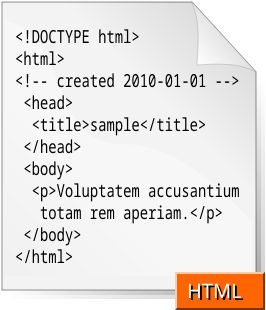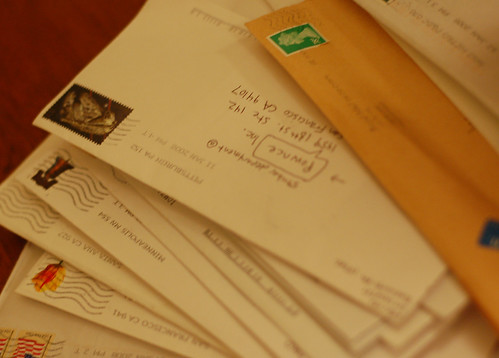Have you ever been to a book burning? To this day, people still protest against some of the material in Mark Twain's books. Schools around the world ban Catcher in the Rye, written way back in 1951. When you're writing from the heart, and writing something that's going to resonate, creating a real world using nothing but your words, you might end up stepping on a few toes. Offensive and adult subject matter might creep in, and sometimes touchy subjects have to be included in a work to create the powerful effect the author wants. But when you start stepping on toes, you've got to be prepared to get kicked right in the pants.
Let's Write About Sex
Dare you to sit through just one hour of television without finding some reference to sex, either overt or well-hidden. It's in the beer commercials where the women run around braless, it's in the dating commercials where the two mildly attractive people lock eyes and stare suggestively at each other. It's even in the sitcoms, when sex becomes a joke (because everything's a joke). It's even in the car commercials. It's everywhere, because sex sells. And if you've ever walked through the book aisle of a grocery store, you know good and well it sells books, too. Even one of the Twilight books (and movies) had a sex scene, and those are primarily marketed to teenagers.
Sex is, quite frankly, part of living. Everyone who is alive would never have been so without sex. Whether you're writing a romance, love story, comedy or tragedy, sex might happen. It's definitely going to happen in some cases, and it's your job as a writer to figure out exactly how you need to handle it.
There's a thin line between writing erotica and writing romance novels. Both kinds of books have sex scenes, but one is much more explicit than the other (can you guess which?). Erotica novels are built around sex and sexual encounters; by contrast, romance novels focus on love (with sex sprinkled in). It's confusing, because you can write very sexy, very erotic scenes into a romance novel and still not be writing erotica. Romance writer Jennie Bryant summed it up succinctly in her blog, where she wrote that the sex in romance novels is built around feelings, with mild euphemisms used to describe the action (you'll find pleasant-sounding words for the male anatomy, like "member," and sweet words for the female's, like "mound"). In erotica, the sex is far more graphic and vivid -- and much more present throughout the book. The words and descriptions are more in-your-face, and the sex is present throughout. If you are writing a romance or an erotica novel, always stick to the basic rules.
Why? Because you don't want to alienate your readers. Many women are drawn to romance novels because they want all that gooey love junk, and explicit sex scenes more akin to erotica novels will feel, to them, like a bit of a betrayal.
Sex might happen even if you aren't writing within the safe confines of a sex-specific genre, however. If it can happen in Twilight, it can happen anywhere. Love and sex are often present in many books, from mysteries to teen fiction, because (once again) it's a basic part of life. But sex scenes in these off-genre novels shouldn't read anything at all like sex in romance novels. Forget all the stuff you learned about vivid imagery and descriptive writing. Be vague while still getting the point across. It's tempting, and sort of easy, to spice up any novel with a thrilling sex scene -- but a sex scene can still be good without giving readers a full blow-by-blow. If your readers don't expect it, they may not like it...and that's when you start moving into offensive territory. Once you've been branded with that label and started to piss off your readers, you might find yourself getting burned by the flames. Take a gentle hand when writing sex scenes into off-genre novels, and avoid alienating your readers.
Other Offensive Material
Religion. Politics. Racism. Even if you aren't writing about sex, there are plenty of land mines to navigate. Faith, political convictions and certain belief systems are part of the world, and they may become part of your story. Writing a passionately political character can be very exciting, and creating a villain with racist tendencies is a good way to illustrate some of the uglier aspects of human nature.
But it's dangerous. You could easily upset religious groups, parental groups, activists -- you could even piss PETA off if you've got a character who lives inside fur and leather goods. For realism's sake, and for the sake of the story you need to tell, you can't always skip the offensive parts of life. It's out there, and it may be a very necessary part of your story.
If you're going to include anything offensive or potentially incendiary, you've got to write carefully. Many writers find a way to introduce this subject matter and skirt the line of decency without actually crossing it. There are many literary tricks you can try to help balance out your work. If one character is an extremist, for example, you might create an additional character to serve as a counterpoint -- someone to introduce the opposite point of view. You've got to be sensitive to all sides when you're dancing around a potentially offensive subject; often, writers will have offensive characters come to ill ends in their books to include a moral lesson or commentary on their behavior. Be careful about how you use racial slurs and other offensive material in your writing. It can be effective, but at times it can be too effective for getting your readers fired up and passionate. If there's something in your work that gives you pause, test the story out on a beta reader or two before you release it to the public. A second opinion can provide valuable insight and help you more safely steer through the waters of offensive writing.
Let's Write About Sex
Dare you to sit through just one hour of television without finding some reference to sex, either overt or well-hidden. It's in the beer commercials where the women run around braless, it's in the dating commercials where the two mildly attractive people lock eyes and stare suggestively at each other. It's even in the sitcoms, when sex becomes a joke (because everything's a joke). It's even in the car commercials. It's everywhere, because sex sells. And if you've ever walked through the book aisle of a grocery store, you know good and well it sells books, too. Even one of the Twilight books (and movies) had a sex scene, and those are primarily marketed to teenagers.
Sex is, quite frankly, part of living. Everyone who is alive would never have been so without sex. Whether you're writing a romance, love story, comedy or tragedy, sex might happen. It's definitely going to happen in some cases, and it's your job as a writer to figure out exactly how you need to handle it.
There's a thin line between writing erotica and writing romance novels. Both kinds of books have sex scenes, but one is much more explicit than the other (can you guess which?). Erotica novels are built around sex and sexual encounters; by contrast, romance novels focus on love (with sex sprinkled in). It's confusing, because you can write very sexy, very erotic scenes into a romance novel and still not be writing erotica. Romance writer Jennie Bryant summed it up succinctly in her blog, where she wrote that the sex in romance novels is built around feelings, with mild euphemisms used to describe the action (you'll find pleasant-sounding words for the male anatomy, like "member," and sweet words for the female's, like "mound"). In erotica, the sex is far more graphic and vivid -- and much more present throughout the book. The words and descriptions are more in-your-face, and the sex is present throughout. If you are writing a romance or an erotica novel, always stick to the basic rules.
Why? Because you don't want to alienate your readers. Many women are drawn to romance novels because they want all that gooey love junk, and explicit sex scenes more akin to erotica novels will feel, to them, like a bit of a betrayal.
Sex might happen even if you aren't writing within the safe confines of a sex-specific genre, however. If it can happen in Twilight, it can happen anywhere. Love and sex are often present in many books, from mysteries to teen fiction, because (once again) it's a basic part of life. But sex scenes in these off-genre novels shouldn't read anything at all like sex in romance novels. Forget all the stuff you learned about vivid imagery and descriptive writing. Be vague while still getting the point across. It's tempting, and sort of easy, to spice up any novel with a thrilling sex scene -- but a sex scene can still be good without giving readers a full blow-by-blow. If your readers don't expect it, they may not like it...and that's when you start moving into offensive territory. Once you've been branded with that label and started to piss off your readers, you might find yourself getting burned by the flames. Take a gentle hand when writing sex scenes into off-genre novels, and avoid alienating your readers.
Other Offensive Material
Religion. Politics. Racism. Even if you aren't writing about sex, there are plenty of land mines to navigate. Faith, political convictions and certain belief systems are part of the world, and they may become part of your story. Writing a passionately political character can be very exciting, and creating a villain with racist tendencies is a good way to illustrate some of the uglier aspects of human nature.
But it's dangerous. You could easily upset religious groups, parental groups, activists -- you could even piss PETA off if you've got a character who lives inside fur and leather goods. For realism's sake, and for the sake of the story you need to tell, you can't always skip the offensive parts of life. It's out there, and it may be a very necessary part of your story.
If you're going to include anything offensive or potentially incendiary, you've got to write carefully. Many writers find a way to introduce this subject matter and skirt the line of decency without actually crossing it. There are many literary tricks you can try to help balance out your work. If one character is an extremist, for example, you might create an additional character to serve as a counterpoint -- someone to introduce the opposite point of view. You've got to be sensitive to all sides when you're dancing around a potentially offensive subject; often, writers will have offensive characters come to ill ends in their books to include a moral lesson or commentary on their behavior. Be careful about how you use racial slurs and other offensive material in your writing. It can be effective, but at times it can be too effective for getting your readers fired up and passionate. If there's something in your work that gives you pause, test the story out on a beta reader or two before you release it to the public. A second opinion can provide valuable insight and help you more safely steer through the waters of offensive writing.
























